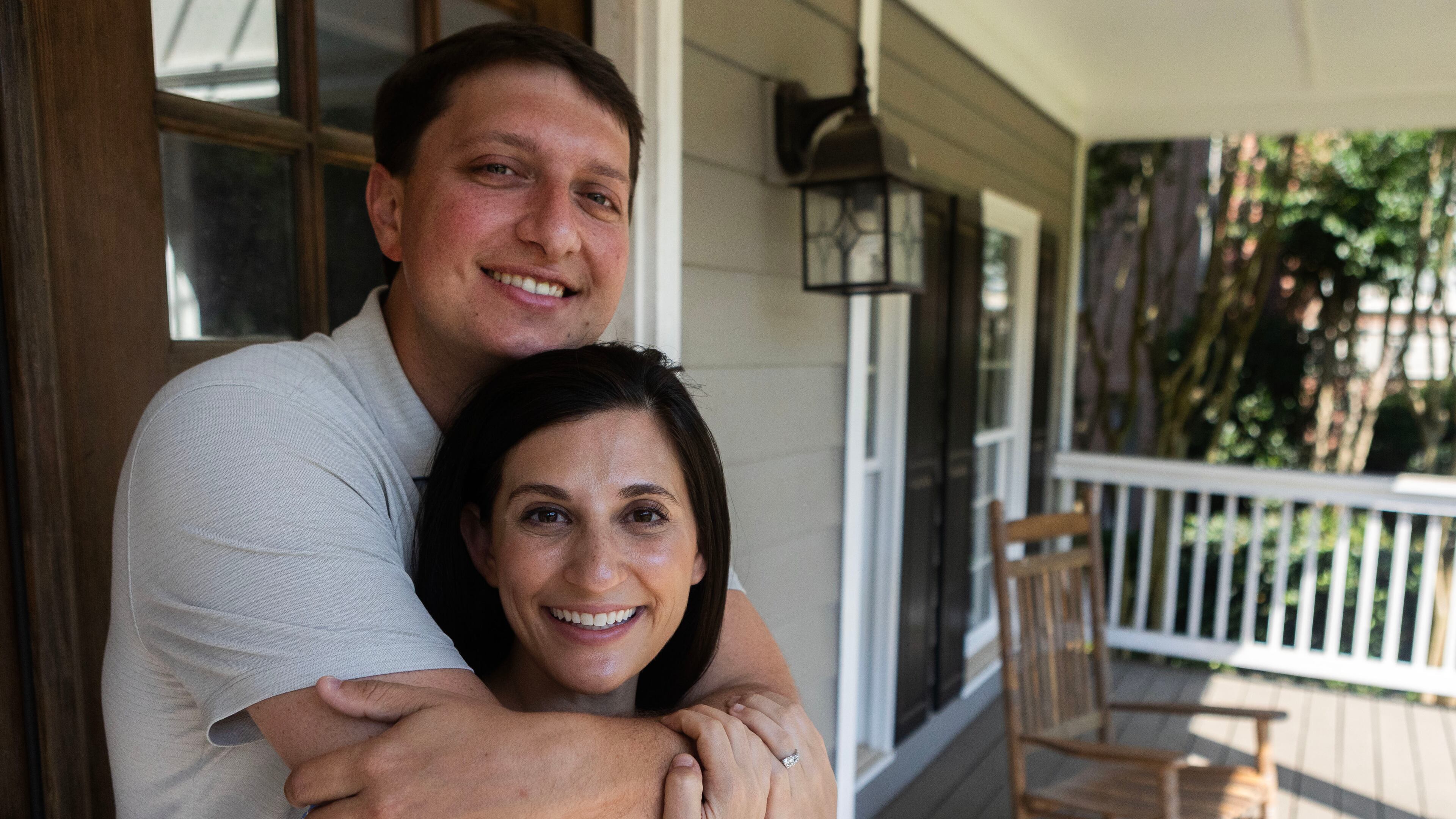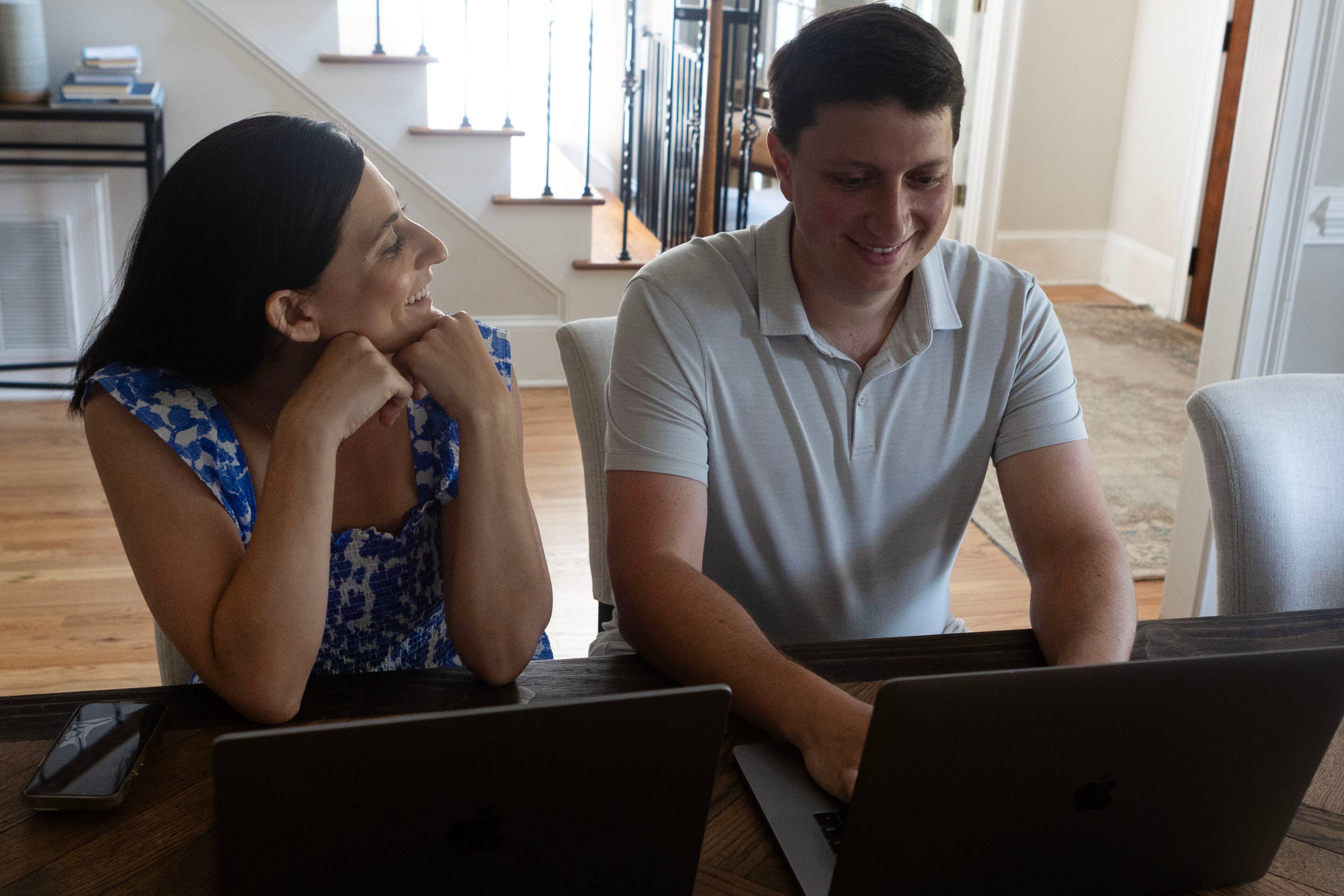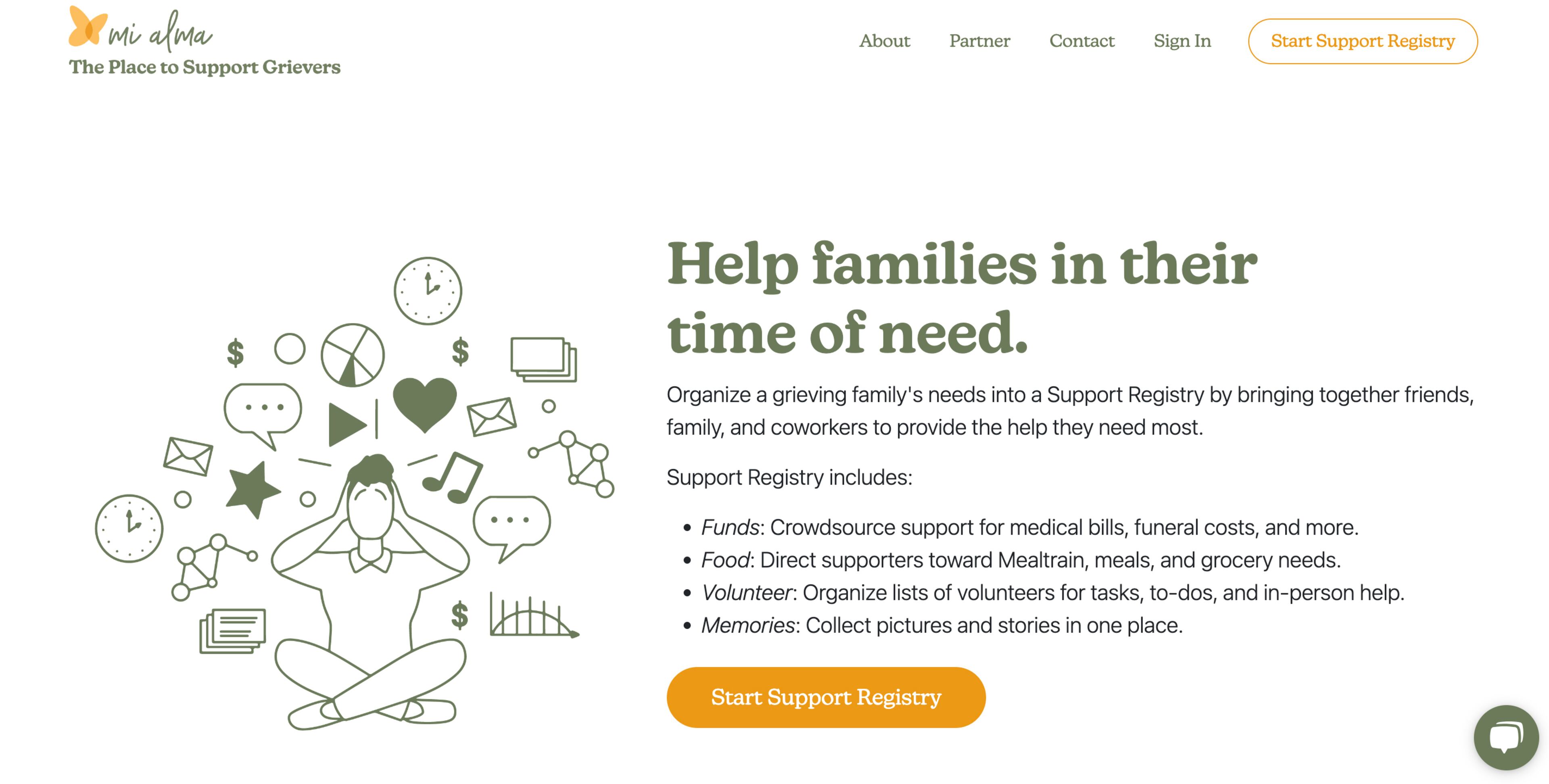Atlanta couple provides a new way to support grieving loved ones

Finding the right words and actions to support a grieving loved one hardly comes easy. Atlanta couple Jordan and Scott Arogeti are no strangers to wanting to do more when someone is experiencing a loss but not knowing where to start. They wanted to find a way to ease the confusion, to “bridge the disconnect between grievers and supporters,” Jordan Arogeti said.
Mi Alma is their solution. The website, which means ‘my soul’ in Spanish, is a singular location to direct supporters in times of grief, Scott Arogeti said. It’s a support registry, memory wall and resource all in one place.

“Everyone wants to step up in different ways, and so that’s where we want to give more systems and process and order to the chaos that often ensues while also shielding the grievers from having to answer redundant questions,” Jordan Arogeti said.
The Arogetis, who have worked for various tech startups in the past, saw an opportunity for technology to address unmet needs during times of grief. They realized there are plenty of resources for the happy times, like weddings and births, but none for the hard ones.
Since launching the website in April, Scott Arogeti said they’ve seen about 1,000 users. To continue spreading the word about the website, the team is partnering with nonprofits, houses of worship and hospice groups.
The website allows supporters to create a page for a deceased person, with about 300 created since the site’s launch. On the page, users can crowdfund for financial needs like funeral expenses or donations. They can also send money for meals, groceries and delivery gift cards.
The website offers more than financial donations; supporters can sign up to volunteer their time. This feature can be personalized based on an individual family’s needs, like dog walking, child care, mowing the lawn, visitation and more.
“Part of it is allowing supporters to direct their compassion,” Scott Arogeti said. “The goal is to try to minimize the decisions for the family, not put more on them.”
Mi Alma also acts as a digital memory book.
Scott Arogeti never met his maternal grandparents. He said it was strange to him while growing up that he knew one set of grandparents and not the other.
“There was no Wikipedia page for the average person,” he said.
The memory wall is meant to function like a personal Wikipedia for deceased loved ones where users can post photos, memories, funny stories and link to videos of a person, all contained in one space. It’s a way for loved ones to live on for generations.

“You’re really kind of leaning into this 360-degree view of someone’s life, which can in a sense keep them alive in perpetuity,” Scott Arogeti said.
For recent Kennesaw State University graduate Milad Jabbari, the memory wall feature made a huge difference for him and his fraternity brothers.
Jabbari learned about Mi Alma while he was interning at the Rally Foundation for Childhood Cancer Research. Jordan Arogeti introduced him to the website during a partnership meeting with the Rally Foundation. Jabbari had a chance to make his own page, and he immediately thought of a fraternity brother who died by suicide almost a year ago.
Jabbari created his first post on that page and sent the link out in a group chat. Everyone loved it, he said. One fraternity brother sent a link to the deceased’s parents and sister.
“[With him] being in college and being away, his parents missed out on a lot of fun stories, fun memories that we all shared with him,” Jabbari said. “So the page was a really cool way that we could all kind of tie that in, keep the memories all linked together.”
Jabbari said so far they’ve gathered around 10 to 15 posts on the memory wall, and he estimates that over 100 people have seen the page. He said he’s glad future fraternity brothers who never got to meet their lost brother would be able to use the page to learn about him, too.
“I just wish I knew about [Mi Alma] sooner because it really did impact our group in a great way,” he said.
While developing the website, Jordan and Scott Arogeti didn’t want cost to be a barrier to grievers. They turned to Rabbi Josh Hearshen, who has ample experience with grieving families.
Hearshen said he told the couple it was important not to charge families at such a vulnerable time in their lives, and the Arogetis said they wanted to create a sacred space for people to share memories, one without the pressure of likes, follows or ads.
They tried out a few financial models and decided they wanted to make their products available at no cost. When a user donates money to a page, they can opt into rounding up to cover the operational fees, which increases the impact for the families and supports Mi Alma’s broader mission, Scott Arogeti said.
Hearshen started as a Mi Alma partner when he opened 10 pages for his synagogue’s congregation, but when his father died, he became a Mi Alma user.
He and his sister have since posted memories on the wall, and his congregation was able to donate money to cover meals the week before and after his father’s death. He hopes the page will eventually be a place where his daughters can go whenever they want to hear stories or see photos of their grandfather, he said.
“It really hasn’t reached that tipping point yet where people are using [Mi Alma] in place of things like virtual guest books on funeral home websites and Facebook, so we’re still working toward that, but I think it has what it’s going to take to get there,” Hearshen said.
Scott Arogeti said they’re still adding new features to Mi Alma and working to expand more outside of Atlanta. In time, it could evolve into a resource for more than death, he said.
“We want to help teach people how to show up and take action in ways that are more comfortable,” Scott Arogeti said. “You don’t have to do everything to do something.”


